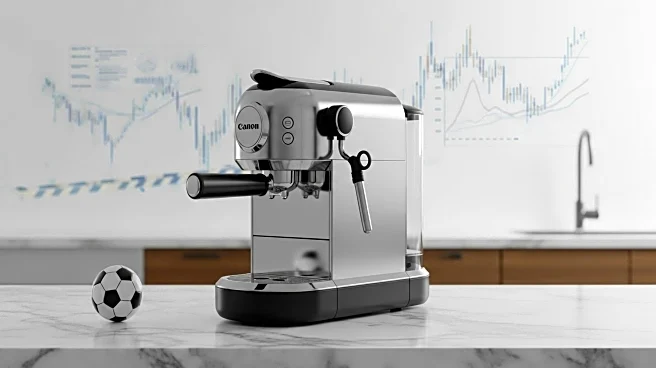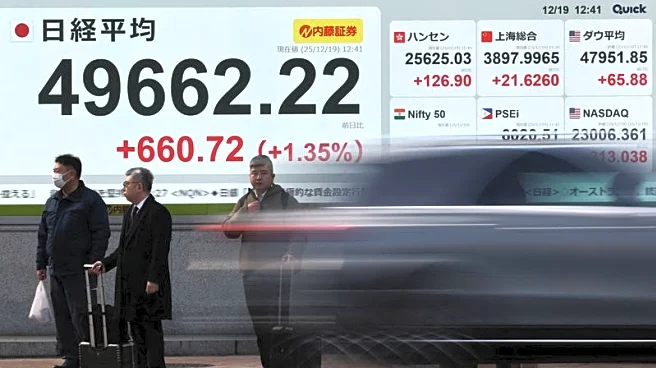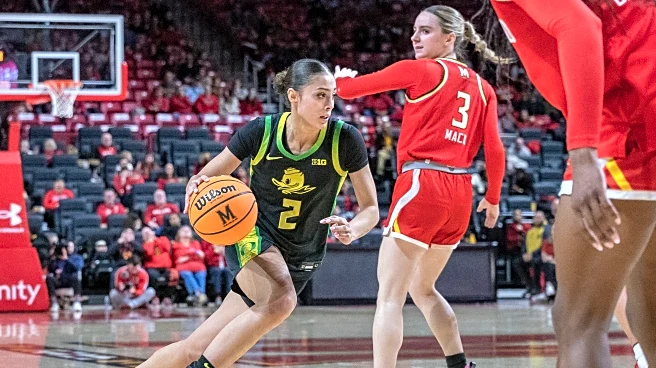What is the story about?
What's Happening?
Keurig Dr Pepper has been identified as one of the most oversold stocks on Wall Street, with a 14-day relative strength index (RSI) of 29. The company's shares fell over 17% this week following the announcement of its $18 billion acquisition of Dutch coffee company JDE Peet's. This acquisition is expected to generate $400 million in cost synergies over three years and will result in the separation of its beverage and coffee units into two publicly-traded businesses. Despite the potential upside of 29% based on analyst price targets, HSBC downgraded the stock from buy to hold, citing the high cost of the deal.
Why It's Important?
The oversold status of Keurig Dr Pepper highlights significant investor concerns regarding the company's strategic decisions and financial health. The acquisition of JDE Peet's and the subsequent restructuring could impact the company's market position and profitability. Investors are wary of the company's increased leverage, which could affect its ability to navigate future market challenges. The downgrade by HSBC reflects broader skepticism about the financial prudence of the acquisition, potentially influencing investor sentiment and stock performance.
What's Next?
Keurig Dr Pepper plans to complete the acquisition and restructuring by the first half of 2026. The company aims to leverage cost synergies to improve profitability. However, the market will closely monitor the execution of these plans and their impact on the company's financial stability. Analysts and investors will be watching for further updates on the restructuring process and any changes in market conditions that could affect the company's stock performance.
Beyond the Headlines
The decision to separate the beverage and coffee units could have long-term implications for Keurig Dr Pepper's business model and market strategy. This move may allow the company to focus more effectively on each segment, potentially leading to improved operational efficiency and market competitiveness. However, the high cost of the acquisition raises questions about the company's ability to manage its debt and maintain shareholder value.















